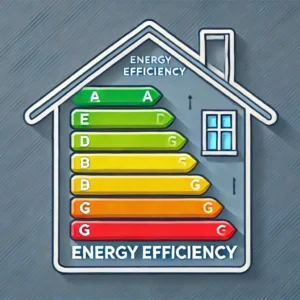When looking for a home loan, borrowers typically choose between traditional banks, credit unions, and private mortgage companies. Private mortgage lenders can offer flexible loan options, faster approval processes, and less stringent requirements compared to banks. However, they also come with potential drawbacks, such as higher interest rates and fees. This guide explores the benefits and risks of using a private mortgage company to help you make an informed decision.
1. What Is a Private Mortgage Company?
A private mortgage company is a non-bank lender that provides home loans to buyers who may not qualify for traditional bank financing. These lenders operate independently, offering a range of mortgage products, including conventional, FHA, jumbo, and alternative loan programs.
How Private Mortgage Companies Differ from Banks:
- More flexible qualification criteria
- Faster approval and funding processes
- May accept lower credit scores or alternative income verification
- Potentially higher interest rates and fees
2. Benefits of Using a Private Mortgage Company
Faster Loan Approval and Closing
Private lenders typically have streamlined application processes, reducing paperwork and speeding up loan approval. This is beneficial for buyers who need quick financing, such as those purchasing in competitive markets or making cash-like offers.
More Flexible Lending Requirements
Borrowers with non-traditional income sources, self-employed individuals, and those with lower credit scores may find it easier to qualify for a loan through a private lender. These companies often consider alternative factors beyond just credit scores and W-2 income.
Diverse Loan Options
Private mortgage lenders offer specialized loan products that may not be available through traditional banks, such as:
- Non-conforming loans for unique property types
- Loans for real estate investors and house flippers
- Interest-only or adjustable-rate mortgages (ARMs)
- Loans for individuals with irregular income
Personalized Customer Service
Some private lenders provide more personalized service, working closely with borrowers to tailor loan solutions to their specific needs. This can be particularly beneficial for first-time homebuyers or those with complex financial situations.
3. Drawbacks of Using a Private Mortgage Company
Higher Interest Rates
Since private lenders often take on more risk by lending to borrowers with lower credit scores or non-traditional income sources, they may charge higher interest rates compared to banks.
Higher Fees and Costs
Private mortgage companies sometimes have higher origination fees, processing fees, and prepayment penalties. It’s essential to review the loan’s total cost before committing.
Less Regulatory Oversight
Unlike traditional banks, which are subject to strict federal regulations, some private mortgage lenders operate with less oversight. This can result in varied lending standards and potential risks if dealing with an untrustworthy lender.
4. When Should You Consider a Private Mortgage Lender?
Using a private mortgage company may be a good option if:
- You need fast approval and funding to secure a home in a competitive market.
- You don’t qualify for traditional loans due to self-employment, low credit scores, or irregular income.
- You’re purchasing a unique property that banks may not finance.
- You want alternative loan options that aren’t available through traditional lenders.
5. Key Factors to Consider Before Choosing a Private Lender
- Compare Interest Rates and Fees: Ensure you understand the total cost of the loan, including origination fees and closing costs.
- Check Lender Credibility: Read customer reviews, check ratings, and verify that the lender is licensed in your state.
- Understand the Loan Terms: Review repayment schedules, prepayment penalties, and whether the loan terms align with your financial goals.
- Evaluate Long-Term Financial Impact: While a private lender may offer quick approval, ensure the loan is sustainable for your budget.
Final Thoughts
Private mortgage companies offer a valuable alternative to traditional banks, especially for borrowers who need flexible lending options or faster loan processing. However, they can come with higher costs and varying lending standards. Before choosing a private lender, compare loan offers, read the terms carefully, and assess whether the benefits outweigh the potential downsides for your financial situation.






